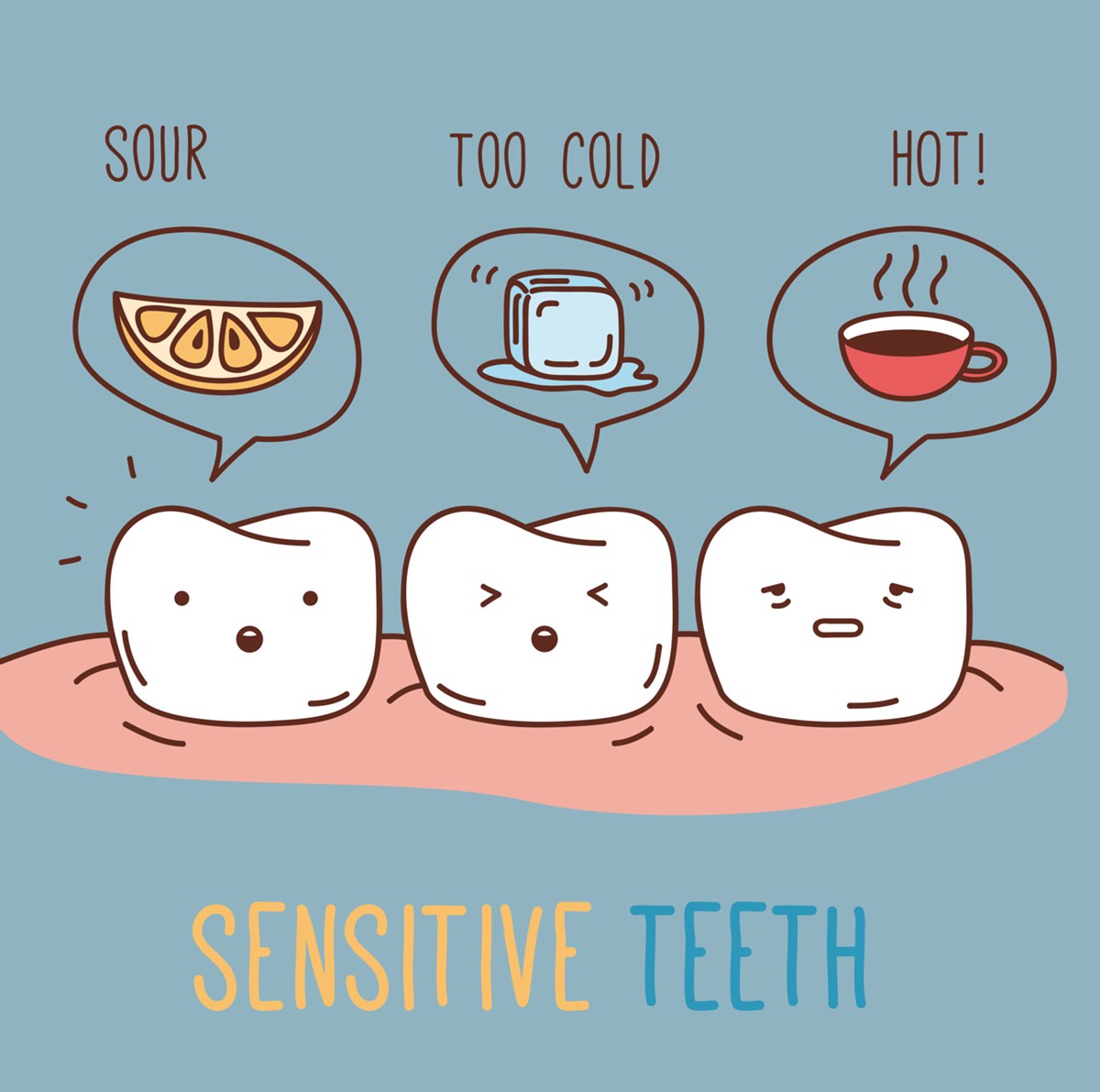When you face any teeth-related issue, go to the best dentist for getting information about the condition and also to get advice on the oral hygiene routine that should be maintained.
Most dentists recommend Sensodyne toothpaste as it not only cleans the teeth and gums but also ensures there is no sensitivity issue for a long time. You should brush your teeth twice every day using this product. Before buying the toothpaste, you should ensure it has fluoride.Don’t use a toothbrush that is too harsh on the teeth as it can worsen the sensitivity problem. Sensodyne toothbrushes are specifically created for those who are suffering from this issue.
How To Get Long-term TEETH Protection?
Although you know that certain toothpaste and brushes can help in managing sensitive teeth, there are some things that need to be considered while looking to manage dentine hypersensitivity.
Ongoing Daily Oral Care
Most sufferers don’t follow a good habit and don’t brush their teeth appropriately. They generally over-brush the teeth and use hard brushes that cause the teeth’s inner parts to become exposed. Hence, when they drink cold water, their nerves can easily sense it and make them feel discomfort.
Best Tips For Sensitive Teeth
• Flossing and brushing should be done before eating breakfast and after eating dinner. It is extremely important because it can limit the conditions that can cause receding gums.
• Most people think that sensitivity is caused because they might have avoided the brushing routine. However, it is caused by hard and frequent brushing. So don’t become aggressive on already sensitive teeth.
• In case your family members are facing the issue and they won’t change the way of brushing, then you can get a softer toothbrush. These brushes can protect the enamel even if the person puts too much pressure while brushing.
Don’t forget to bring toothpaste that is specifically created to treat sensitive teeth. Sensodyne is one such brand that includes fluoride and if used twice daily, the person will be able to protect their teeth and keep the gums healthy for a long time. Regularly make visits to the dentist. For best results, you should get advice from them every 5 months.
Sensitive Teeth: Causes & Treatments
Unexpected pain or discomfort when consuming hot or cold food and drinks, or when you breathe through your mouth, are common symptoms of sensitive teeth. The good news is, it’s also treatable – and with our helpful guide, you can discover the main causes, symptoms and best ways to manage tooth sensitivity.
Visit your dentist if tooth sensitivity lasts more than a few weeks.
What Is Tooth Sensitivity?
If you get a short, sharp, painful sensation in your teeth when you bite into an ice cream, take a sip of an icy drink or slurp a mouthful of hot soup, chances are you have sensitive teeth.
Tooth sensitivity is an exaggerated response to stimuli such as hot, cold, sweet or acidic foods and drinks, exposure to cold air and even brushing your teeth.
What Do Sensitive Teeth Feel Like?
Symptoms of sensitive teeth can range from a mild twinge to considerable discomfort. Pain can come and go, and may be worse on some occasions than others. Depending on the cause of your sensitivity, you may not feel pain in every tooth.
Why Are My Teeth Sensitive?
To understand the answer to this question, it helps to know a little about the structure of your teeth. Each tooth consists of the crown, which is the visible part of the tooth, and the root, which anchors each tooth into your jaw. Components of the crown include:
- Tooth enamel. The hard, white-looking layer that protects the sensitive inner parts of each tooth. Tooth enamel is the hardest material in your body – even stronger than bone.
- Cementum. A thin, protective layer of bone-like tissue under the gum line that protects the tooth root.
- Dentin. A layer of softer tissue which contains tiny canals or “tubules.”
- Pulp. The soft tissue deep inside each tooth that contains blood vessels, connective tissue and nerves.
If for any reason the enamel starts to wear away or erode, your tooth’s dentin is exposed. When this happens, nerve signals pass to the tooth root and from there to the brain – meaning that things like eating popsicles or drinking hot drinks, which normally don’t cause a reaction, can suddenly trigger pain and sensitivity.
What Causes Sensitive Teeth?
A range of factors can lead to tooth sensitivity, but there are two main underlying reasons: enamel loss and gum recession.
Causes of enamel loss include:
- Over-zealous brushing. Brushing too vigorously or too often.
- Acid erosion. From acidic foods and drinks such as sugary sports drinks and sodas.
Causes of gum recession include:
- Brushing too hard. This can injure the gum tissue.
- Gum disease. A common oral health disease that can cause receding gums.
- Your genes. Regardless of how you care for your teeth, you may be genetically susceptible to gum recession.
- Smoking. Tobacco products increase plaque buildup on teeth, which can lead to a greater risk of gum recession over time.
Professional and at-home teeth whitening (bleaching) treatments may cause temporary sensitivity, although this should disappear within a short time of stopping treatment.
How to Help Treat Sensitive Teeth
It is possible to ease the pain of sore, sensitive teeth so they are less troublesome and easy to manage. Maintaining a good oral health routine is key. Brushing twice a day, every day, with Sensodyne toothpastes for tooth sensitivity relief is an easy way to alleviate symptoms, providing long-lasting sensitivity protection.
Conclusion
We hope now you understand the main reason for tooth sensitivity. You can enjoy all the food and drink by making small changes in your brushing habit, toothpaste, and toothbrush.
Must Read🧡
😎 Causes And Symptoms Of Tooth Sensitivity
Bookmark the post By clicking on the ⭐ icon above the website
👉 Follow us on Social Media -



:max_bytes(150000):strip_icc()/tooth-sensitivity-after-crown-5210263_final-d23f1835c9ef4b5abbcb7bedca050f37.gif)




.jpg)
0 Comments